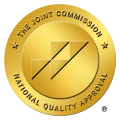How to Spot Gaslighting in Your Rehab Patients
Psychological abuse exists in various forms, and gaslighting is one of them. This form of abuse occurs in intimate relationships, friendships, and relationships between parents and their children. Gaslighting is also common in rehab patients.
Article Contents
What is Gaslighting?
According to Psychology Today, gaslighting is when someone makes a person question their reality in a power search.1 The term gaslight originates from the 1944 film “Gaslight” in which a husband manipulates his wife by telling her she is mentally ill and hallucinating. Manipulative behavior is the core of gaslighting.2
Signs of Gaslighting
Signs of gaslighting include:3
- No longer feeling like the person you used to be.
- Being more anxious and less confident than you used to be.
- Often wondering if you’re being too sensitive.
- Feeling like everything you do is wrong.
- Always thinking it’s your fault when things go wrong.
- Apologizing often.
- Having a sense that something’s wrong but being unable to identify what it is.
- Often questioning whether your response to your partner is appropriate (I.e. wondering if you were too unreasonable or not loving enough).
- Making excuses for your partner’s behavior.
- Avoiding giving information to friends or family members to avoid confrontation about your partner.
- Feeling isolated from friends and family.
- Finding it increasingly hard to make decisions.
- Feeling hopeless and taking little or no pleasure in activities you used to enjoy.
Why Do People Gaslight Others
Gaslighting is a form of manipulation, and it is often practiced by individuals or groups seeking to gain power over others. Individuals who gaslight are often associated with narcissism.
When is Gaslighting Most Common?
Gaslighting can exist in any relationship, such as boss and employee, government and population, parent and child, or teacher and student, but it is most common in romantic relationships.
Gaslighting in Relationships
Gaslighting manipulation in relationships is common but not immediately noticed. According to Stephanie Sarkis, Ph.D., “Abusers generally don’t start off at full force, or else their victim would immediately leave; rather, they start slowly, which adds to the sense of confusion and unreality the victim experiences…”4
In the beginning, the gaslighter will over-deliver with affection and gifts. As the victim begins to trust them, the gaslighter will begin to criticize more and more often.
Gaslighting Parents
Gaslighting parents, according to psychologists, are perceived as parents that manipulate their children for their children to obey, by making them feel worse about their choice to disobey.
Medical Professionals and Patients
Medical gaslighting is used to describe when a physician or medical professional uses manipulative behavior to undermine a patient’s symptoms. For example, a medical professional may state that a patient’s pain or symptoms are not real or that they are a result of stress or depression. In situations like this, it can take years for a patient to receive a proper diagnosis.5
Examples of Gaslighting
Examples of gaslighting manipulative behaviors will vary depending on the circumstance or the relationships.
Examples of gaslighting phrases include:6
- Making one doubt their memories: “I never said that you have a terrible memory!”
- Criticizing one’s appearance: “You need to lose weight.”
- Using love as a weapon: “If you loved me, you would…”
How Does Gaslighting Affect Patients in Rehab
A victim of gaslighting and manipulation often has their perspectives skewed due to the negative actions of their abuser.
How it Affects Mental Health
A gaslight victim’s perceptions are almost completely altered while they are in the hands of their abuser(s). Someone’s cognitive function is no longer logical but confused. Gaslighting is a form of abuse on the mind that in turn creates a victim with deeply rooted issues in lack of trust, depression, or anxiety.
Why Gaslighting Can Push One to Substance Abuse
The effects of gaslighting extend further than the possibility of mental health disorders. Gaslight victims, when experiencing high levels of stress, depressions, and anxiety, may resort to substance abuse as a coping mechanism.
How to Deal with Gaslighting
There are several steps an individual can take to deal with a gaslighting abuser:7
- Keeping a journal: Someone can record gaslighting incidents in a journal. The journal should be stored in a secure and safe area where the abuser cannot access.
- Recording voice memos: A victim can discretely record a gaslighting incident to refer to in the future.
- Taking photographs: If it is safe, a victim can take a photograph to record and prove their memories. If photographs cannot be taken with a phone, they may be taken with a disposable camera that the victim can hide from their abuser.
- Email: Instead of keeping proof of abuse on a device at home or a shared electronic device, a victim can email information to a trusted friend or loved one and remove the evidence after sending it.
When to Seek Help
Once an individual has confirmed the sign of gaslighting under the hand of their abuser(s), contacting the domestic violence helpline starts the process of understanding what they are experiencing.
Treatment for the Effects of Gaslighting
Considering that gaslighting is a form of mental abuse, seeking treatment for its effects is like seeking treatment for post-traumatic stress disorder stemming from the traumatic effects of the abuse.
Therapies
Therapy for the effects of gaslighting includes trauma-focused strategies, such as cognitive-behavioral therapy. Because the effects of gaslighting strongly affect the individual’s perceptions and contribute to their behaviors CBT is “a form of psychological treatment that has been demonstrated to be effective for a range of problems including depression, anxiety disorders, alcohol and drug use problems, marital problems, eating disorders, and severe mental illness.”8
Dual Diagnosis for Substance Abuse
Dual diagnosis occurs when an individual suffers from a mental illness and substance misuse. Dual diagnosis treatment targets the mental health of the individual and leads them through the journey to stabilization and healing.
Resources
https://www.medicalnewstoday.com/articles/gaslighting
https://www.healthline.com/health/gaslighting#signs
https://www.thehealthy.com/family/relationships/gaslighting-phrases/
https://www.medicalnewstoday.com/articles/how-to-deal-with-gaslighting#how-to-deal-with-it
https://www.apa.org/ptsd-guideline/patients-and-families/cognitive-behavioral




